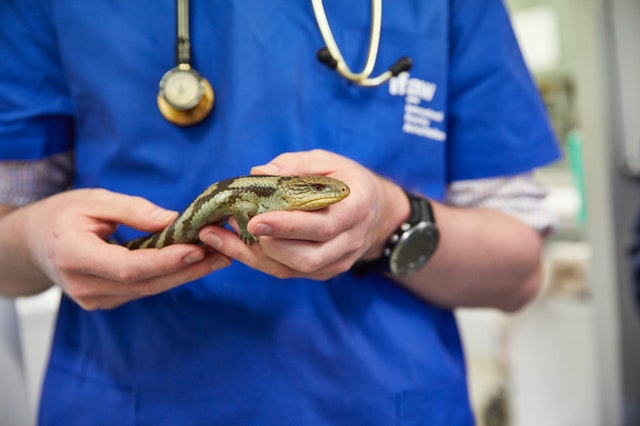What Is a Veterinary Residency?
Residency programs aren’t limited to traditional doctors. There are residencies for veterinarians as well. Known as a veterinary residency, it’s designed to prepare aspiring veterinary specialists for the real world. What is a veterinary residency exactly?
The Basics of Veterinary Residency
A veterinary residency is an extended period of formal training and education that focuses on a specialty in veterinary medicine. It generally follows a Doctorate of Veterinary Medicine (DVM) program. After completing a DVM program, an aspiring veterinary specialist can begin a residency.
Most veterinary residencies are three years long. Of course, that follows a DVM program, which is generally four years long. During a residency, aspiring veterinary specialists will follow one or more mentors while learning more about a specialized field of veterinary medicine. Mentors will allow supervise them as they perform tasks associated with a specialized field of veterinary medicine. Residency trainees can ask mentors for guidance to gain further knowledge and expertise.
Veterinary residencies are offered at both colleges as well as private veterinary practices. Some of the same colleges that offer DVM programs offer veterinary residencies as well. If you’re thinking about completing a DVM program, you may want to choose a college with a residency. That way you won’t have to move to a different location — or commute to a different college — to complete your residency. You can learn more about the American Veterinary Medical Association’s (AVMA’s) requirements for veterinary residency programs here.
Veterinary Internship vs Residency: What’s the Difference?
While the terms “veterinary internship” and “veterinary residency” are often used interchangeably, they aren’t the same. A veterinary internship is a one-year program that prepares aspiring veterinary specialists for a residency. Like a residency, it comes after a DVM program. The difference is that a veterinary internship is a shorter and more basic program, whereas a residency is a longer and more complex program.
Aspiring veterinary specialists typically can’t begin a residency until they’ve completed an internship program or have acquired at least two years of experience working at a private veterinary practice. An internship helps to prepare them for a residency. Aspiring veterinary specialists will learn about veterinary medicine during a DVM program, and they’ll apply this knowledge during an internship and residency program. A residency is simply a longer period of education and training that comes after an internship.

Is a Veterinary Residency Required?
A veterinary residency may or may not be required, depending on your specific career path. If you’re trying to become a licensed veterinarian, you don’t need to complete a residency, nor do you need to complete an internship; you just need to complete a DVM program. Once you’ve completed a DVM program, you can complete your state’s requirements for licensure to begin a career in veterinary medicine.
If you’re trying to become a veterinary specialist, on the other hand, you must complete a residency The AVMA recognizes dozens of veterinary specialties. Veterinary dentistry, for example, is a specialty that focuses on the diagnosis and treatment of dental and oral diseases in animals. Veterinary pathology, conversely, is a specialty that focuses on disease-causing pathogens in animals. Other AMVA-recognized specialties include veterinary pharmacology, veterinary radiology, veterinary nutrition, veterinary behavior, veterinary dermatology, veterinary anesthesia and more.
Benefits of Veterinary Residency
Completing a veterinary residency offers several benefits. First and foremost, it’s a prerequisite for becoming a veterinary specialist. You don’t need to complete a residency to become a licensed veterinarian, but you will need to complete one to become a veterinary specialist. When you begin a veterinary residency, you’ll already be a licensed veterinarian. A residency will extend your education and training by focusing on a specialized field of veterinary medicine. It’s essentially one of the final steps in your path to becoming a veterinary specialist. Unless you complete a residency, you won’t be able to practice as a veterinary specialist.
Some people assume that veterinary residents don’t earn money. They associate residencies with volunteer work. There’s a big difference between working as a veterinary resident and volunteering, however. As a volunteer, you won’t get paid for your time and work. Whether you volunteer for two hours or 20 hours a week, you’ll be donating your time and work. As a resident, though, you will typically get paid. Most internship and residency programs are paid.
The real value of completing a veterinary residency is the hands-on experience it offers. Veterinary medicine is extensive, but the specialties in which it encompasses are even more in-depth. When completing a veterinary residency, you’ll be able to perform hands-on tasks associated with a specialized field of veterinary medicine under the supervision of one or more mentors.
In Conclusion
A veterinary residency is a three-year program that centers around a specialized field of veterinary medicine. They are offered at colleges and private veterinary practices. A typical veterinary residency is three years, and it usually follows a DVM program and an internship.

